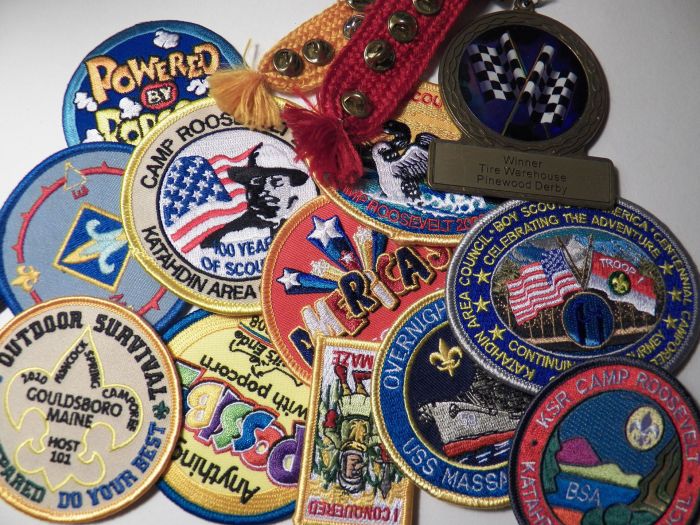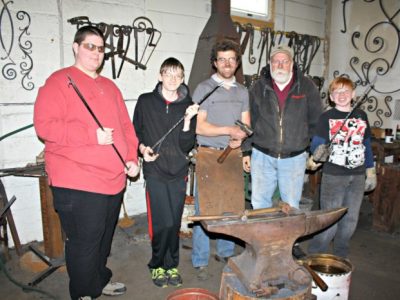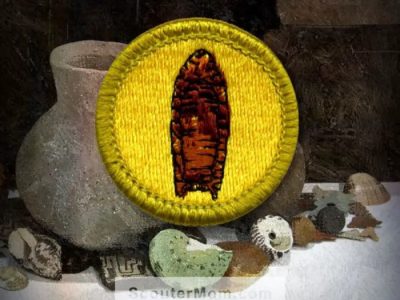List of Scout Merit Badges: Embark on a journey of discovery and achievement as we delve into the world of Scout merit badges. These badges, symbols of accomplishment and personal growth, serve as stepping stones in the Boy Scouts of America’s comprehensive advancement program.
From the early days of Scouting to the present, merit badges have played a pivotal role in shaping young lives. They provide Scouts with opportunities to explore diverse skill areas, enhance their knowledge, and cultivate essential character traits. Join us as we explore the rich history, categories, and significance of Scout merit badges.
Historical Background of Scout Merit Badges
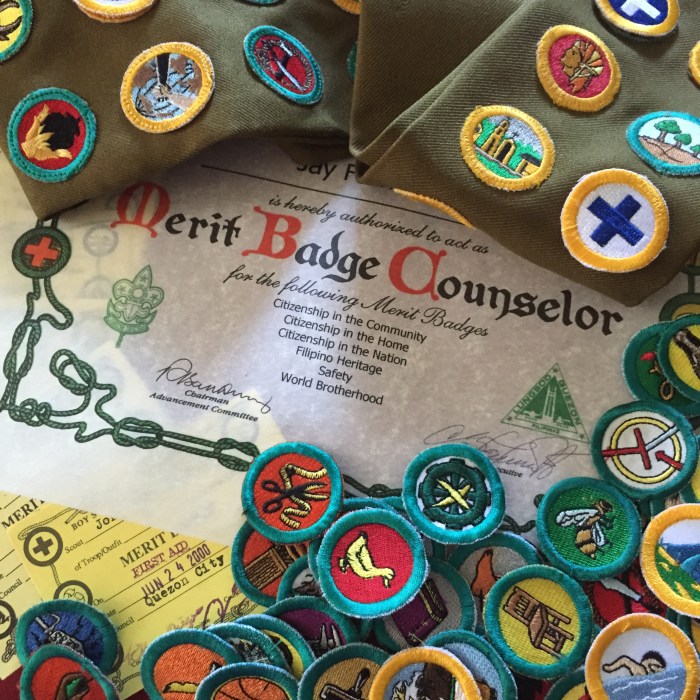
The concept of merit badges originated in the British Boy Scouts Association in 1908, where they were known as proficiency badges. In 1910, the Boy Scouts of America (BSA) adopted the idea and introduced the first 57 merit badges, which were primarily focused on outdoor skills and practical knowledge.
These early merit badges included: First Aid, Camping, Cooking, Pioneering, Signaling, and Swimming. They were designed to encourage Scouts to develop their abilities and interests in various fields, while also fostering their sense of accomplishment and pride.
Role in the BSA Advancement Program, List of scout merit badges
Merit badges play a crucial role in the BSA’s advancement program, which provides a structured framework for Scouts to progress through the ranks of Tenderfoot, Second Class, First Class, Star, Life, and Eagle Scout. To earn each rank, Scouts must complete a set of required merit badges, along with additional electives, demonstrating their proficiency in various skills and areas of knowledge.
Classification and Categories of Scout Merit Badges
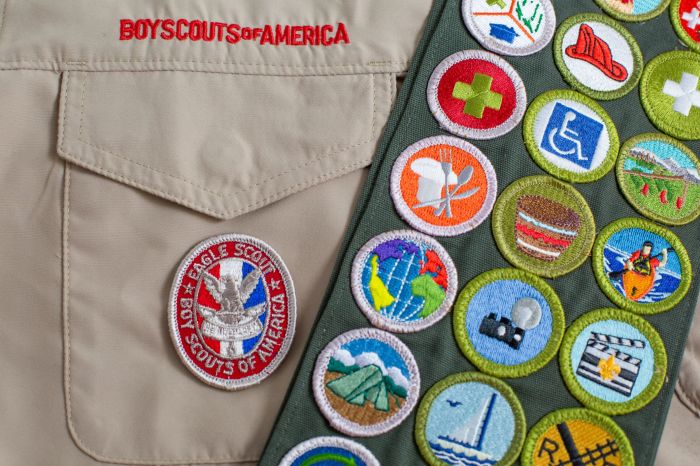
Scout merit badges are classified and categorized based on various criteria, including skill areas, age levels, and difficulty. Each category has specific requirements and objectives that scouts must meet to earn the badge.
Skill Areas
Merit badges are grouped into skill areas such as:
- Outdoor skills (e.g., camping, hiking, fishing)
- Citizenship skills (e.g., first aid, civics, communication)
- Personal development skills (e.g., cooking, personal fitness, art)
- STEM skills (e.g., robotics, engineering, computer science)
Each skill area covers a range of topics and activities that help scouts develop specific skills and knowledge.
Age Levels
Merit badges are also categorized based on age levels, with different badges available for:
- Cub Scouts (ages 6-11)
- Boy Scouts (ages 11-18)
- Venturers (ages 14-21)
The requirements and difficulty of merit badges vary depending on the age level, ensuring that scouts are challenged appropriately.
Difficulty
Merit badges are further categorized based on difficulty, typically using a three-tier system:
- Easy (typically for younger scouts)
- Moderate (for scouts with some experience)
- Challenging (for experienced scouts)
The difficulty level determines the complexity of the requirements and the time and effort required to earn the badge.
Purpose and Benefits
Earning merit badges in different categories serves several purposes and provides benefits for scouts, including:
- Developing valuable skills and knowledge
- Building confidence and self-esteem
- Exploring new interests and hobbies
- Preparing for future careers and life challenges
By earning merit badges, scouts not only demonstrate their accomplishments but also gain valuable experiences that contribute to their personal growth and development.
Methods for Earning Scout Merit Badges
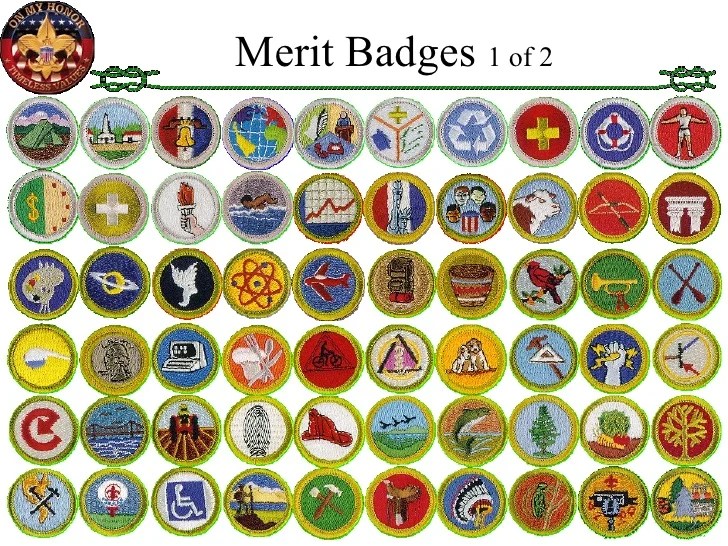
Scouts can earn merit badges through various methods, each offering unique opportunities for skill development and personal growth.
Merit Badge Counselors
One primary method involves working with certified Merit Badge Counselors (MBCs). These experienced individuals guide Scouts through the requirements of specific badges, providing instruction, resources, and support. Scouts can connect with MBCs through their local Scout units, district or council offices, or online platforms.
Workshops
Workshops provide a structured environment where Scouts can immerse themselves in a particular merit badge topic under the supervision of qualified instructors. These events often involve hands-on activities, demonstrations, and discussions that enhance understanding and practical skills. Workshops are typically offered by Scout councils, summer camps, or community organizations.
Independent Study
Independent study allows Scouts to pursue merit badges at their own pace and schedule. With the approval of their unit leader, Scouts can research and complete requirements on their own. However, it is crucial to seek guidance from knowledgeable adults, such as parents, teachers, or subject matter experts, to ensure accurate completion and understanding.
Significance and Impact of Scout Merit Badges
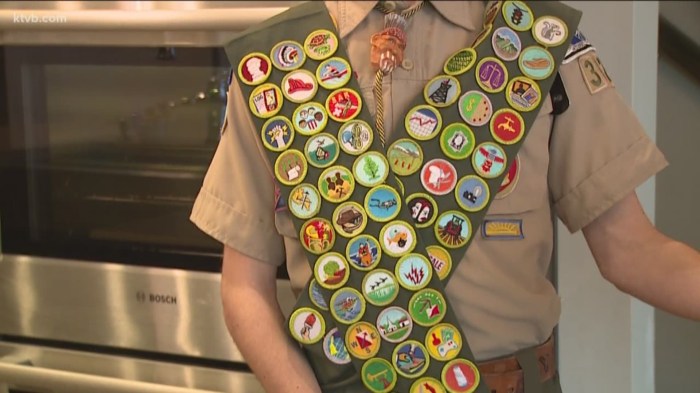
Earning merit badges in Scouting provides invaluable educational and personal development opportunities for young people. These badges represent a wide range of skills, knowledge, and character traits, fostering the growth and well-being of Scouts.
Through the pursuit of merit badges, Scouts develop essential life skills, such as problem-solving, critical thinking, and teamwork. They also gain practical knowledge in various areas, including first aid, environmental conservation, and outdoor recreation. By engaging in these activities, Scouts build confidence, resilience, and a sense of accomplishment.
Success Stories
Numerous success stories attest to the transformative impact of earning merit badges. For instance, a Scout who earned the First Aid merit badge was able to use his skills to save the life of a fellow camper who suffered a severe injury.
Another Scout, who earned the Environmental Science merit badge, became passionate about protecting the environment and went on to pursue a career in conservation.
Closing Summary: List Of Scout Merit Badges
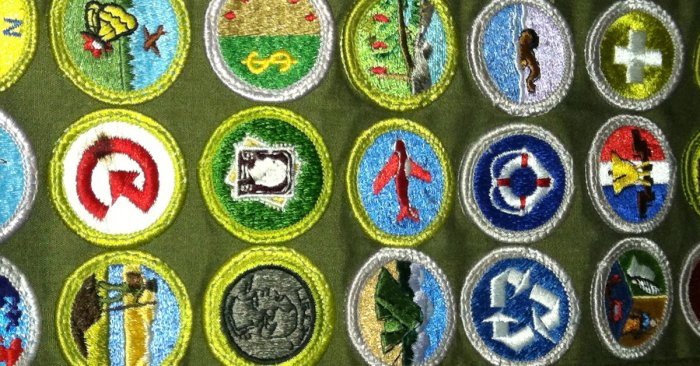
Earning Scout merit badges is not merely about accumulating badges; it’s about embarking on a transformative journey of self-discovery and skill development. Each badge represents a milestone in a Scout’s growth, a testament to their dedication, perseverance, and commitment to excellence.
As they navigate the various categories and requirements, Scouts not only acquire valuable skills but also develop a sense of accomplishment, self-confidence, and a lifelong love of learning.
General Inquiries
What is the significance of Scout merit badges?
Scout merit badges serve as tangible symbols of a Scout’s accomplishments and personal growth. They represent the skills, knowledge, and character traits they have developed through their participation in various activities and projects.
How many Scout merit badges are there?
As of 2023, there are 138 official Scout merit badges available for Scouts to earn, covering a wide range of skill areas and interests.
How can Scouts earn merit badges?
Scouts can earn merit badges through various methods, including working with merit badge counselors, attending workshops, or pursuing independent study projects.
